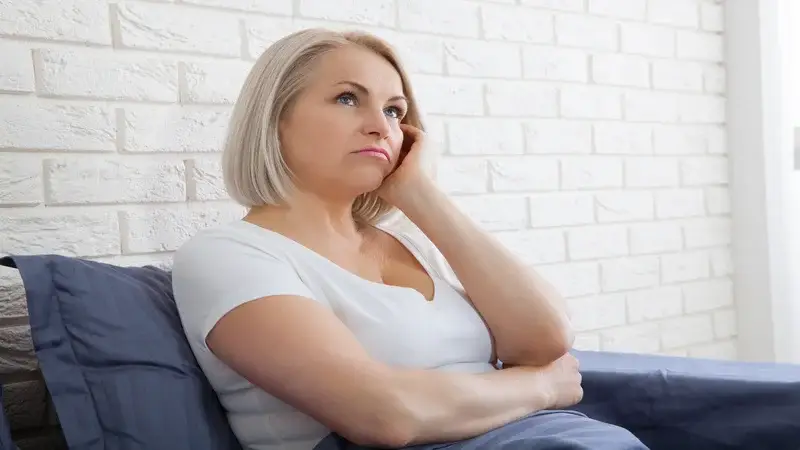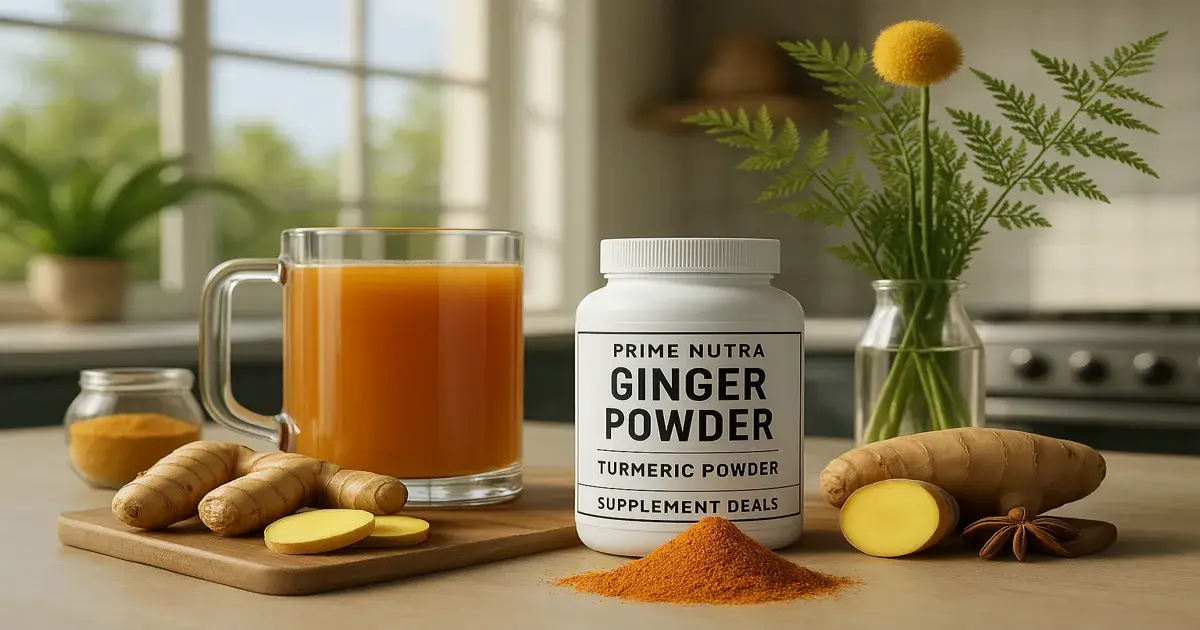Discover practical strategies to feel balanced, confident, and in control during every stage of menopause.
Did you know that about 80% of women going through a life transition have hot flashes and night sweats? This shows how common and impactful these symptoms can be. Knowing what to expect during this phase is crucial for a smoother transition. It usually happens between 45 and 55, with an average age of 51.
During this time, hormonal changes can cause irregular periods, mood swings, and sleep issues1. Finding ways to manage these symptoms is important. Getting personalized advice and support is key. By understanding what to expect, we can better prepare and find ways to ease symptoms.
Key Takeaways
- Understanding the average age of menopause helps in anticipating the transition.
- Recognizing common symptoms can facilitate proactive management strategies.
- Hormonal changes impact not just physical health but emotional well-being as well.
- Consulting with a healthcare provider is crucial for personalized menopause relief.
- Incorporating healthy lifestyle choices can significantly ease the menopause journey.
Understanding the Transition: What to Expect

It is a big change in a woman’s life, ending her childbearing years. It happens when a woman stops getting her period, usually in her late 40s or early 50s. In the U.S., the average age for this transition is about 51 years.
Before this phase, women generally go through perimenopause. This is a period of change that can last from 2 to 8 years, with an average of 4 years.
Defining Menopause
Menopause is when the ovaries stop making estrogen and progesterone. This leads to the end of menstruation. About 75% of women get hot flashes during this time, which can be mild or severe.
Symptoms come from hormonal changes. They can cause sleep problems, mood swings, and issues with urination.
Typical Age of Onset
Menopause usually starts between 45 and 55 years old. Some women may go through it early, before 40, due to primary ovarian insufficiency. This shows that menopause can happen at different times for different women.
Common Symptoms
This transition can bring uncomfortable symptoms. Physical symptoms like hot flashes and night sweats are common. They can disrupt daily life, especially when they happen at inconvenient times.
Physical Symptoms Like Hot Flashes and Night Sweats
About 75% of women get hot flashes during this phase, lasting less than two years. Night sweats often come with hot flashes, causing sleep problems. This can make you feel tired and affect your mood all day.
Nearly 80% of women deal with these symptoms. Menopausal symptoms can start before periods stop and last for years. Keeping a cool sleep environment is key to managing these symptoms.
Mood Changes and Emotional Well-Being
Mood changes add to the challenges of menopause. Women may feel irritable, anxious, or depressed. These feelings can hurt relationships, work, and self-esteem.
Women under 45 often find these emotional symptoms difficult to manage. It is important to understand all the symptoms, including mood changes. This helps in finding the right support and guidance.
Gerenciando os sintomas da menopausa de forma eficaz
This phase can be tough, but managing symptoms is doable with the right help. Talking to your OBGYN for advice is key. They can offer personalized treatment plans, including hormone therapy and other medication alternatives.
Consulting Your OBGYN for Personalized Advice
Your OBGYN is a great ally during menopause. They can pinpoint symptoms like hot flashes and night sweats. They’ll suggest lifestyle tweaks or treatments to ease your discomfort. Remember, most women manage symptoms without treatment.
Exploring Hormone Therapy Options
Hormone therapy is a common solution for symptoms. It can lessen hot flashes and night sweats in 80% of users. Starting hormone therapy before 60 or within ten years of menopause can also lower heart disease risk.
Other Medication Alternatives
There are medication alternatives besides hormones. Low-dose antidepressants can reduce hot flashes by 50%, a good option for those avoiding hormones. Your OBGYN might also suggest mindfulness, acupuncture, or diet changes to help manage symptoms.To learn how to naturally support hormonal balance during and after this stage, be sure to check out our article on Natural Supplements for Women’s Wellness.
Dietary Considerations During Menopause
Starting a menopause diet rich in nutrients can greatly improve health during this time. It’s important to focus on calcium and vitamin D for bone health. Women should aim for 1,200 milligrams of calcium daily. Vitamin D intake is also key, with 600 IU recommended for those 51 to 70 and 800 IU for those over 70

Importance of Calcium and Vitamin D
Menopause leads to a drop in estrogen, increasing osteoporosis risk. So, getting enough calcium and vitamin D is vital. Studies found that higher vitamin D and calcium intake can lower early menopause risk by 17%. Foods high in dairy and animal protein also help keep bones strong.
Foods that Alleviate Symptoms
Adding certain foods to your diet can ease menopause symptoms. Aim for 1 1/2 cups of fruits and 2 cups of vegetables every day. Women who eat more fruits and veggies often report fewer symptoms. Whole grains and unprocessed foods also support a balanced diet, reducing discomfort.
Maintaining a Balanced Diet
For a balanced diet, cut down on processed foods and sugar. Aim for 21 grams of fiber daily. Keep saturated fat under 7% of your total calories. Limit alcohol to one drink or less a day to help symptoms. Following these tips can make menopause easier.
| Nutrient | Recommended Daily Intake |
|---|---|
| Calcium | 1,200 mg |
| Vitamin D (51-70 years) | 600 IU |
| Vitamin D (>70 years) | 800 IU |
| Iron | 8 mg |
| Fiber | 21 g |
| Fruits | 1.5 cups |
| Vegetables | 2 cups |
| Water | 8 glasses |
Physical Activity for a Smooth Transition
Regular physical activity during menopause offers many benefits. It helps manage symptoms like hot flashes and mood swings. Both aerobic and strength training exercises are key to staying healthy.
Starting an exercise routine can boost your mood and help with weight management. It also improves sleep quality during this life change.
Benefits of Regular Exercise
Exercise is a strong tool against menopause symptoms. It can reduce hot flashes, mood swings, and sleep issues. Research shows it lowers the risk of heart problems and strokes.
The NHS suggests adults, including postmenopausal women, do at least 150 minutes of moderate aerobic activity or 75 minutes of vigorous activity weekly. This boosts health greatly. Weight-bearing exercises also help keep bones strong and prevent osteoporosis, which is crucial for women after menopause.
Types of Exercises to Consider
For the best health during menopause, mix different exercises:

Flexibility exercises: Yoga and stretching improve balance and flexibility, reducing fall risks.
- Aerobic exercise: Walking, cycling, or swimming improve heart health and mood.
- Strength training: Doing resistance exercises two days a week builds muscle and keeps bones strong. Even five exercises twice a week can greatly improve bone density over time.
By doing these exercises, I can enjoy many physical and mental benefits. This makes the transition smoother and supports my health.
Self-Care Strategies for Menopause Relief
As I go through menopause, finding good self-care is key. It helps me deal with symptoms better. Stress management is especially important for keeping my emotions stable.
Practicing Stress Management Techniques
Yoga and meditation help a lot with my mood. About 80% of women in midlife face hot flashes and night sweats, which stress can make worse. By using stress management every day, I feel better. Cognitive Behavioral Therapy (CBT) can also help by lowering stress from hot flashes.
The Role of Sleep in Managing Symptoms
Getting enough sleep is vital for feeling good during menopause. Up to 40% of women struggle with sleep. Good sleep habits, like regular times and a calm bedtime routine, help a lot. Studies show that better sleep improves health during menopause.
Community and Support During This Transition
Menopause can feel lonely. Finding menopause support through friends and groups helps a lot. Sharing stories with others brings comfort. About 75 million women in the U.S. are going through this, showing we’re not alone.
Connecting with others helps us feel less lonely. It lets us know we’re not the only ones feeling this way.
Connecting with Support Groups
Support groups are key during menopause. They’re places where we can talk about our struggles, like hot flashes and mood swings. Groups like The Menopause Society give doctors the tools to help us.
These groups offer more than just medical advice. They focus on our overall well-being during menopause.
Seeking Emotional Support from Friends and Family
Having friends and family by our side is crucial. Their support can be incredibly comforting. Yet, many women struggle to find the help they need—6,000 are untreated because of lack of support.
A strong support network helps us stay strong. By sharing our stories, we build a community that supports each other.
Natural Remedies for Symptoms
Many women look for natural ways to ease menopause symptoms. Phytoestrogens, found in soy and flaxseeds, help balance hormones. They might reduce hot flashes and mood swings. Studies show soy isoflavones can help, but results vary.
Enfrentando a Menopausa com Mais Equilíbrio e Menos Estresse
Por ser uma fase natural na vida de toda mulher, não significa que precisa ser uma luta constante contra todos seus sintomas. Felizmente, existem suplementos naturais que ajudam a facilitar essa transição de forma segura e eficaz — especialmente quando combinados com um estilo de vida equilibrado.
Alívio para os sintomas da menopausa
Se você está procurando suporte abrangente durante a menopausa, este suplemento é formulado com ingredientes que ajudam a equilibrar os hormônios, reduzir ondas de calor e melhorar o bem-estar geral . Ter o produto certo na sua rotina pode transformar seus dias — e suas noites.
👉 Confira este suplemento de suporte à menopausa aqui
Say Goodbye to Anxiety
Anxiety affects thousands of women during this stage of life, often triggered by hormonal changes. Anxiovita offers a natural formula designed to calm the mind, improve mood, and promote emotional balance.
👉 Try Anxiovita and feel the difference
Restful Sleep Means Better Days
Insomnia is a common complaint during and after menopause. A good sleep supplement can help you fall asleep faster, sleep more deeply, and wake up refreshed — all without harsh side effects.
👉 Discover the natural power of Sleep Support
Complete Support for Women’s Health
Want to boost your overall wellness even further? This supplement combines active ingredients that support energy, focus, hormonal balance, and mental clarity, offering complete support for your body.
👉 See how this supplement can help you
Soluções Herbais para Explorar
Herbal options like black cohosh are popular for menopause. Some studies say it helps with hot flashes and night sweats, but results are not always consistent. My experience with herbs shows their effectiveness can vary.
Taking care of yourself is a powerful act of self-love. With the right supplements and guidance from a healthcare professional, it’s possible to navigate menopause with more balance, vitality, and overall well-being. However, it’s crucial to speak with your doctor before starting any new supplement or herbal product, especially if you’re already taking medication. This precaution helps prevent potential interactions and ensures a safer, more effective approach to your health
Conclusion
Olhando para trás, vejo que a menopausa pode ser difícil. Todo ano, cerca de 1,3 milhão de mulheres nos EUA passam por ela, geralmente entre 45 e 56 anos .

It’s essential to seek help from doctors who can tailor advice to meet your needs. Knowing what’s ahead and getting support can make a big difference.
Keeping healthy is a must. Eating right and staying active can help with symptoms and keep you feeling good. Up to 80% of women deal with hot flashes and other symptoms, so finding ways to manage them is important. Support groups or friends can offer a listening ear and help you feel less alone.
Seeing menopause as a chance to grow can be empowering. Using stress-reducing methods and connecting with others can make life better during this time. Let’s support each other and face this journey with courage and knowledge, aiming to live well, not just survive.
FAQ
What is menopause?
Menopause is when a woman stops getting her period, usually in her late 40s or early 50s. It happens when hormone levels like estrogen and progesterone drop. This leads to the end of menstrual cycles.
At what age does menopause usually occur?
Menopause usually happens between 45 and 55 years old, with 51 being the average. But, the time leading up to menopause, called perimenopause, can start years earlier.
What are common menopause symptoms?
Symptoms include hot flashes, night sweats, mood swings, anxiety, and trouble sleeping. How bad these symptoms are can vary a lot from one woman to another.
How can I manage menopause symptoms effectively?
Talking to an OBGYN can help find ways to manage symptoms. They might suggest hormone therapy or other treatments to ease discomfort.
What dietary considerations should I keep in mind during menopause?
Eating foods rich in calcium and vitamin D is key for bone health. Include fruits, veggies, and whole grains. Try to avoid processed foods and sugars to help with symptoms.
How important is exercise during menopause?
Exercise is very important for managing symptoms like mood swings and hot flashes. Aim for a mix of cardio, strength training, and flexibility exercises for better health.
What self-care strategies are helpful during menopause?
Stress-reducing activities like yoga and meditation can improve mood. Getting enough sleep is also crucial, as sleep issues are common during this time.
How can community support help during menopause?
Joining support groups or talking to friends and family can offer emotional support. It helps women feel they’re not alone in their menopause journey.
Are there natural remedies I can explore for menopause symptoms?
Natural options like phytoestrogens in soy and flaxseeds might help with hormone balance and symptoms. But, always check with a healthcare provider before trying new supplements.
Learn more about Prime Nutra Deals and explore our Privacy Policy, Terms of Service, Contact Information, and Affiliate Disclaimer.
This blog is for informational purposes only. We do not sell or produce supplements. Our mission is to recommend quality products that may support a balanced wellness routine.
Some of our content may contain affiliate links, which means we may earn a commission if you make a purchase — at no extra cost to you. Learn more by visiting our Affiliate Disclaimer.
⚠️ The information on this site does not replace professional medical advice. Always consult your healthcare provider before starting any supplement.
© 2025 Prime Nutra Deals – All rights reserved.



